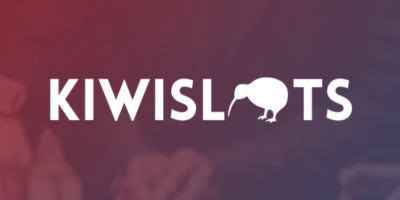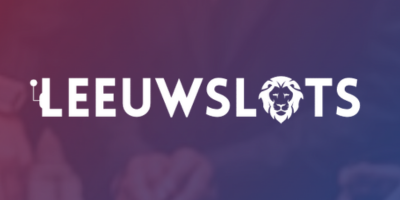THE GREAT GAMBLE By Edwin Ford
During my years working in the gaming industry, it has been both fascinating and humbling to witness its remarkable evolution. I have always been a strong supporter of regulation, appreciating its importance in promoting responsible gaming and safeguarding consumers. What once lingered on the fringe of society has matured into a globally recognized sector, spanning traditional casinos, online sports betting and dynamic iGaming platforms. Alongside this growth, regulatory frameworks have expanded, shaped by shifting political, economic and cultural landscapes.
Across different markets, I’ve quietly observed the unique challenges and opportunities faced by industry stakeholders, particularly as they navigate increasing regulatory complexity. These developments, while rooted in good intentions, often lead to unanticipated consequences for operators, suppliers and even consumers themselves.
A Global Snapshot of Gambling Regulation United States: Fragmentation by design
Since the repeal of PASPA in 2018, the U.S. has seen individual states implement their own sports-betting laws, leading to a patchwork of regulations, tax structures and operational models. For companies operating across state lines, this fragmented approach demands significant investment in compliance and localized technology. American football (NFL) dominates betting markets in the U.S., followed by basketball, baseball, and college sports, each driving seasonal spikes in activity and marketing.
Europe: A shift toward restriction
Europe has long been a model for structured gambling regulation, with countries like the UK pioneering responsible gaming initiatives and licensing regimes. However, recent changes reflect a tightening stance, such as increased affordability checks in the UK and limitations under Gno ermany’s Interstate Treaty, both of which are adding friction to regulated markets. In most European jurisdictions, football (soccer) is the overwhelming favorite among bettors, while tennis and basketball also maintain solid followings across online platforms.

Brazil: Wagering meets complex reform
Brazil’s move to legalize online gambling, including sports betting, was met with optimism following the passage of Bill 3626 in 2023. The law introduced a 12 percent GGR tax, alongside requirements for local presences and updated supervisory frameworks. Yet the swift layering of regulations, combined with proposals to increase selective consumption taxes, has left many operators navigating a highly complex landscape. Unsurprisingly, football stands at the center of Brazil’s betting culture. With passionate support across all demographics, it accounts for most wagers placed in the country.
Africa: Innovation at the margins
Markets like Kenya, Nigeria, and South Africa have emerged as mobile-first powerhouses in the sports betting space, largely due to smartphone penetration and digital payments. Regulatory environments remain uneven, with licensing delays, taxation inconsistencies and occasional reversals impacting stability. Across much of the continent, football is by far the most bet-upon sport. Its ubiquity, from European leagues to local competitions, makes it a cultural cornerstone of sports wagering. Basketball is gaining ground as well, particularly with increased exposure to the NBA and prominent African players on the global stage.
Asia-Pacific: Demand meets disparity
Asia-Pacific remains one of the most promising yet regulatory-challenged regions. The Philippines has developed a legal and monitored framework through PAGCOR, while other large markets like India and China maintain unclear or restrictive rules that limit formal participation. Football remains a leading sport in betting activity across the region, followed by basketball, horse racing and cricket, particularly in countries like India, where cricket drives massive audience engagement.

Oceania: A mature market under review
Australia, with its established regulatory system, has long stood as a benchmark for legal sports betting. However, growing concerns around gambling harm have prompted stricter advertising rules, stake limits and tighter-responsible gambling measures. Sports betting in Australia centers on Australian rules football, rugby league and cricket. These sports not only drive significant betting volumes but also shape advertising and sponsorship landscapes within the region.
A Rising Tide of Compliance and Costs
From the standpoint of those within the industry, adapting to ever-changing regulations across jurisdictions has become both a logistical and a financial challenge:
- Platforms often need to operate across 10-plus different regulatory environments simultaneously.
- New rules can require expensive platform redesigns, updates to data handling or fresh certification processes.
- Many markets require local infrastructure, such as offices, banking relationships and customer support, in turn raising the barrier to entry.
- In regions with rapid regulatory turnover, investments can take years to recover, making entry less attractive
- Recent about-turn changes to gaming taxes illustrate this point:
- Brazil’s proposed increase in selective consumption taxes could push total tax burdens near 40 percent.
- Colombia’s 19 percent VAT on deposits has coincided with a drop in user activity.
- Positively, Peru temporarily reduced its turnover tax from one percent to 0.3 percent in response to market pressure.
- The UK, while debating further tax adjustments, has yet to impose new online duties.
- Lithuania raised its gambling tax from 20 percent to 22 percent in 2025 and increased the gambling age to 21.
Though these measures are often implemented to enhance regulation and generate fiscal returns, they may unintentionally increase operational uncertainty, particularly for small and mid-sized operators.

Regulation and its Role in Economic Recovery
In today’s broader economic climate, industries that can provide employment, investment and tax revenue are often vital to recovery strategies. The gambling sector, when properly regulated, contributes meaningfully to these areas. However, sudden policy shifts, elevated taxes or inconsistent oversight can dilute its ability to deliver those benefits effectively. Finding equilibrium between regulatory control and economic potential remains a subtle but essential task for lawmakers and stakeholders alike.
Final Reflections
Having quietly observed the gambling sector’s development over the years,
***This exclusive article was originally published in July 2025 edition of Sports Betting Operator Issue 017***























